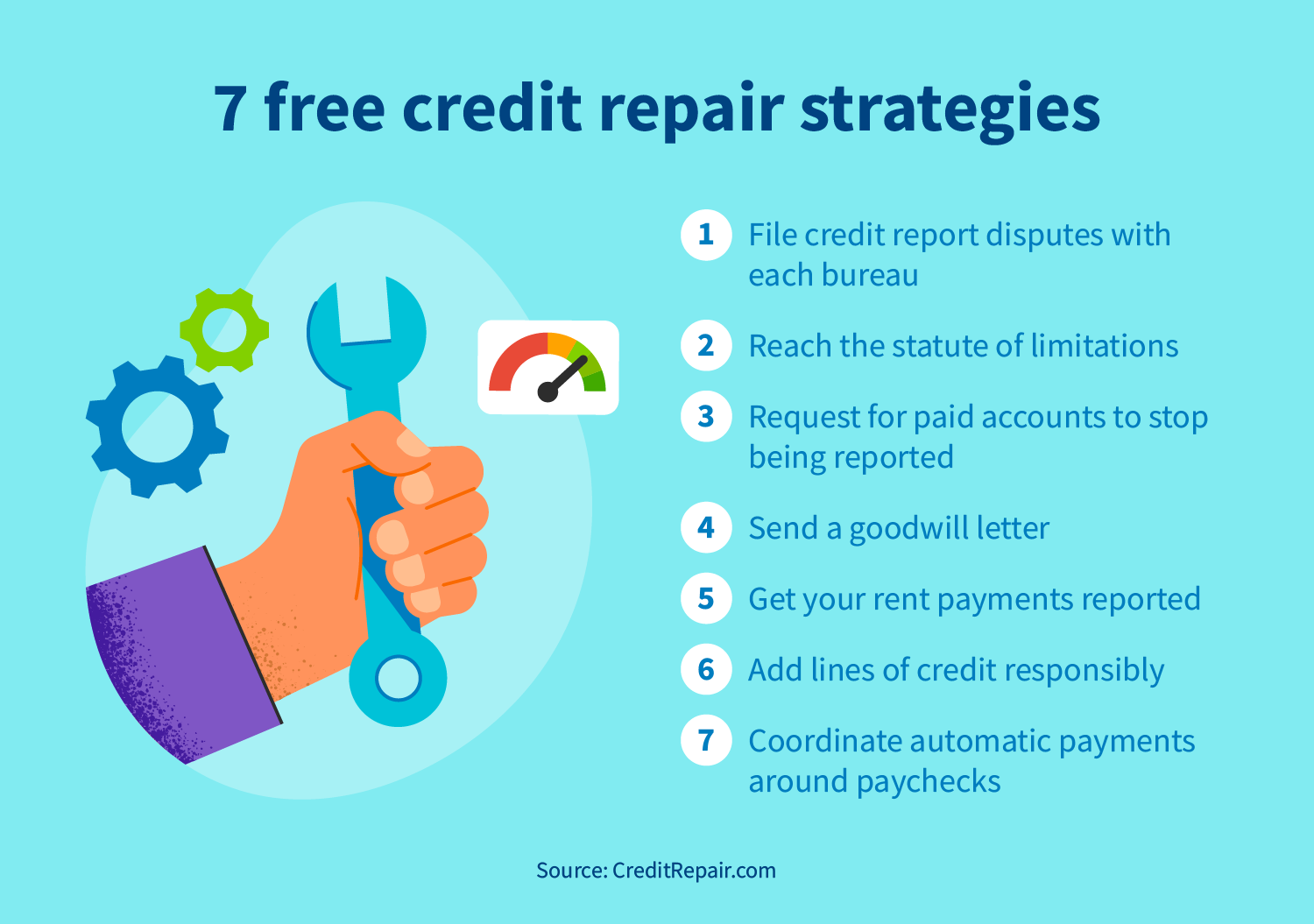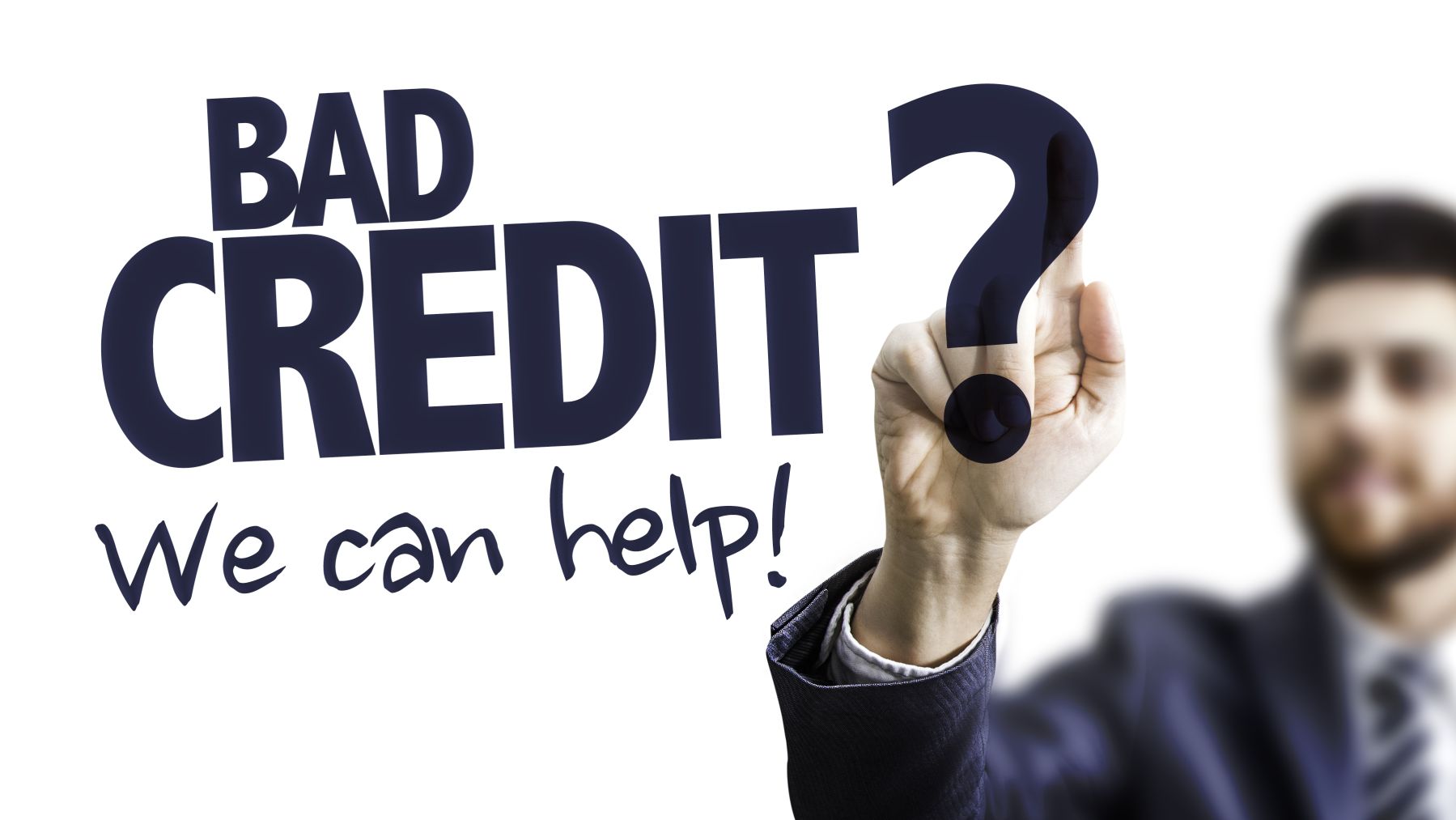Credit Repair Myths Debunked: Dividing Truth from Fiction
Credit Repair Myths Debunked: Dividing Truth from Fiction
Blog Article
Comprehending Exactly How Credit Rating Repair Works to Boost Your Financial Wellness
The procedure encompasses determining mistakes in credit score records, disputing mistakes with credit score bureaus, and bargaining with lenders to address superior financial debts. The question continues to be: what specific approaches can individuals utilize to not just remedy their debt standing but also guarantee enduring monetary stability?
What Is Credit Rating Repair Service?
Credit history repair service refers to the process of boosting an individual's credit reliability by addressing inaccuracies on their credit report, bargaining debts, and adopting far better financial routines. This diverse strategy aims to boost a person's credit history, which is an important consider protecting loans, charge card, and desirable rate of interest.
The credit score fixing process normally starts with a thorough testimonial of the individual's credit history record, permitting the recognition of any type of mistakes or inconsistencies. When errors are determined, the private or a credit history fixing specialist can start disagreements with credit history bureaus to remedy these issues. In addition, bargaining with creditors to work out outstanding financial obligations can better boost one's economic standing.
Moreover, taking on sensible economic methods, such as timely expense payments, lowering debt use, and keeping a diverse debt mix, adds to a much healthier credit report account. Overall, credit scores repair works as a vital approach for individuals looking for to gain back control over their financial health and secure far better loaning opportunities in the future - Credit Repair. By engaging in debt repair, individuals can lead the way towards attaining their economic objectives and enhancing their total top quality of life
Typical Debt Record Errors
Mistakes on debt records can substantially affect a person's credit report, making it crucial to understand the typical sorts of mistakes that may occur. One common concern is wrong individual information, such as misspelled names, wrong addresses, or wrong Social Protection numbers. These errors can lead to complication and misreporting of creditworthiness.
One more common error is the coverage of accounts that do not belong to the individual, often because of identity burglary or clerical mistakes. This misallocation can unfairly lower a person's credit score. Furthermore, late repayments may be inaccurately videotaped, which can take place as a result of settlement processing errors or inaccurate reporting by lending institutions.
Credit history limitations and account equilibriums can additionally be misstated, bring about a distorted sight of an individual's credit rating utilization proportion. Out-of-date info, such as shut accounts still appearing as active, can negatively impact debt examinations. Last but not least, public records, consisting of bankruptcies or tax liens, may be wrongly reported or misclassified. Understanding of these common errors is vital for efficient debt administration and repair, as addressing them immediately can help people preserve a much healthier financial account.
Steps to Conflict Inaccuracies
Disputing errors on a credit scores record is an important procedure that can help restore an individual's creditworthiness. The first step involves obtaining a current copy of your credit report from all three major credit bureaus: see this website Experian, TransUnion, and Equifax. Review the record carefully to identify any kind of errors, such as incorrect account information, balances, or settlement backgrounds.
When you have actually pinpointed inconsistencies, collect sustaining documents that substantiates your cases. This may include financial institution declarations, repayment confirmations, or correspondence with creditors. Next, start the disagreement procedure by calling the relevant credit score bureau. You can typically submit disagreements online, using mail, or by phone. When sending your conflict, clearly outline the errors, supply your evidence, and consist of personal recognition information.
After the conflict is filed, the credit score bureau will check out the claim, usually within thirty days. They will certainly connect to the financial institution for confirmation. Upon conclusion of their investigation, the bureau will notify you of the end result. They will remedy the record and send you an updated duplicate if the dispute is settled in your favor. Keeping precise documents throughout this process is vital for reliable resolution and tracking your credit score wellness.
Building a Strong Credit Scores Profile
How can individuals successfully cultivate a robust credit report account? Building a strong credit score profile is necessary for protecting positive monetary chances. The foundation of a healthy credit history profile starts with timely costs payments. Regularly paying bank card costs, financings, and other obligations on time is vital, as repayment history substantially affects credit rating.
Moreover, keeping low credit score utilization ratios-- ideally under 30%-- is important. This suggests maintaining debt card balances well below their restrictions. Diversifying credit history types, such as a mix of rotating credit score (bank card) and installation finances (automobile or home fundings), can likewise enhance credit score accounts.
Regularly checking credit score records for errors is similarly crucial. People must review their credit score reports at the very least every year to recognize disparities and dispute any type of mistakes immediately. In addition, avoiding extreme credit scores queries can protect against prospective negative influence on credit scores.
Lasting Benefits of Debt Repair Work

Furthermore, a stronger credit history account can facilitate far better terms for insurance costs and even affect rental applications, making it much easier to secure housing. The mental advantages must not be neglected; individuals who successfully fix their credit rating frequently experience lowered anxiety and improved self-confidence in managing their financial resources.

Final Thought
In final thought, credit repair work serves as a vital mechanism for enhancing monetary health and wellness. By determining and challenging inaccuracies in credit reports, people can remedy errors that adversely impact their credit ratings.

The long-lasting benefits of credit repair extend much beyond just enhanced credit history scores; they can substantially enhance a person's overall monetary wellness.
Report this page